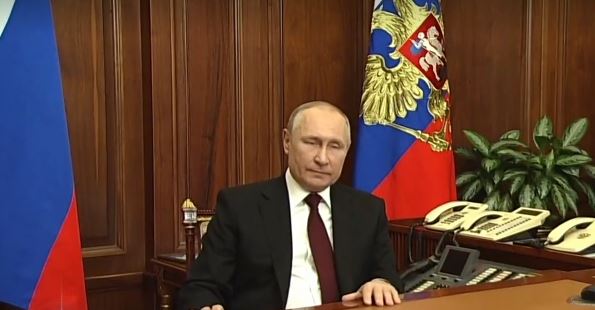Russia cancels Big Tech in bid to create rival internet system
Since Russia’s brutal invasion of Ukraine, the country has been under intense fire and sanctions from different governments all over the world. Now, the Big Tech companies have been dragged into an information war to isolate the country from accessing its services.
Earlier this month, the Russian government announced that it has blocked access to social media giants Facebook and Twitter. This was in direct response to several escalations between Big Tech and the Kremlin since Russia’s February 24 invasion of Ukraine. These social media platforms had placed restrictions on pro-Kremlin accounts before the ban and according to Roskomnadzor, media regulator for Russia, they had recorded 26 cases of discrimination by Facebook targeted against Russian affiliated media outlets.
Unlike China, Russians have for years been able to have access to Western technology platforms like Google, Twitter and Facebook—despite several restrictions and censorships. But with the increasing tension between the country and the Western world, they are being isolated and have chosen to suspend the services of Big Tech platforms in the country.
Nick Clegg, head of global affairs at Meta, Facebook’s parent company said they’re doing everything they possibly can to ensure their services are restored in Russia, citing the current situation would deprive millions from accessing credible information.
“Soon millions of ordinary Russian will find themselves cut off from reliable information, deprived of their everyday ways of connecting with family and friends and silenced from speaking out,” he said, in a statement posted on Twitter.
Russia cutting off access to western tech platforms, despite the millions of people who rely on them for information and to express themselves freely, is all part of a long term plan to break off from the global internet as we may know it.
In 2019, Russia created a law that allows Roskomnadzor to create a sovereign internet that is independent of other nations. This law means internet access in the country can now be more closely controlled and can be potentially separated from the rest of the world. Russian President Vladimir Putin’s announcement early this month further creates more hostility towards western tech services, going as far as placing a penalty of up to 15 years prison sentence for anyone caught spreading “fake” information about the current situation in Ukraine, according to the Committee to Protect Journalists.
Several western news outlets including CNN have had to suspend their activities within Russia due to the new law and social media platform, TikTok equally announced an indefinite suspension of new uploads and live streams on its platform from Russia. Other tech and financial services companies such as Apple, MasterCard, Intel, Microsoft and Visa have all stopped sales and restricted access to their services in the country while other platforms such as Netflix, Spotify and Google are blocking Russian state-run outlets and advertising in the country.
However, all of this storm seems to be perfect for Russia to finally execute its plan of breaking out of the global internet service and creating its own internet, much like what China has done. China has spent several decades building its own internet system with immense censorship capabilities and restricting access to western-owned tech platforms, but Russia is attempting to accomplish this while fighting a war. Whether they do have the same technology to accomplish this as China does is still in question but one thing is certain, they are determined to break off their citizen’s reliance on global tech platforms.
Early this year while speaking at the World Economic Forum, Putin signal a warning to leaders at the summit against the growing influence of big tech companies to the point where they are challenging states—citing their involvement in the previous US presidential elections.
“These are not just economic giants, in some areas they are already de facto competing with states,” said Putin according to a Deutsche Welle report.
There are already reports of Russia planning to set up its own root servers, especially since Putin has always held the opinion that the internet was developed as a tool by the Central Intelligence Agency (CIA). For now, the current situation is prompting more usage for Russia’s alternative platforms such as the search engine Yandex and the social networking site VK—which already has millions of active users.
Russia has been planning for a situation like this for years, fearing the possibility of being shut out of the internet by the United States and have been performing several tests on building an independent network. Last summer, Russia completely disconnected itself from the internet to perform live tests on Runet, a locally based network that was designed to continuously serve web pages in the event of a large scale cyberattack or deliberate internet outage, said Karen Kazaryn, the director of the Internet Research Institute in Moscow.
Building a sovereign internet for a country with plenty of internet diversity like Russia would definitely take a long time to establish, especially since they would need to ensure that nothing essential is dependent on the global internet. However, with the current wave of sanctions the country is facing due to its invasion of Ukraine, there’s a likelihood that current restrictions on Big Tech could mean the country tilting towards an independent internet strategy.
Comments
There are 0 comments on this post












